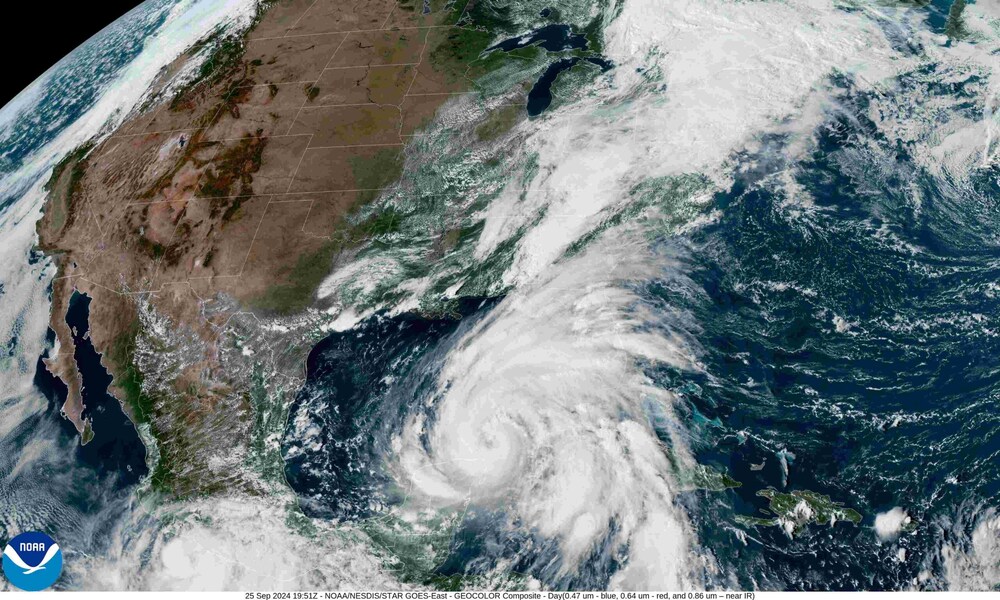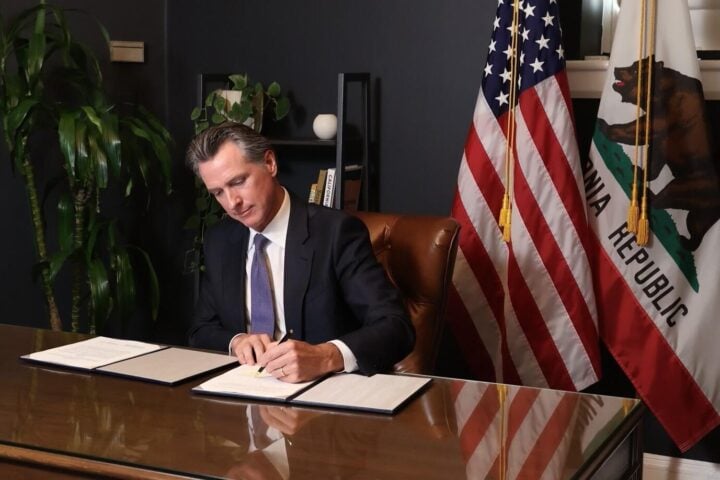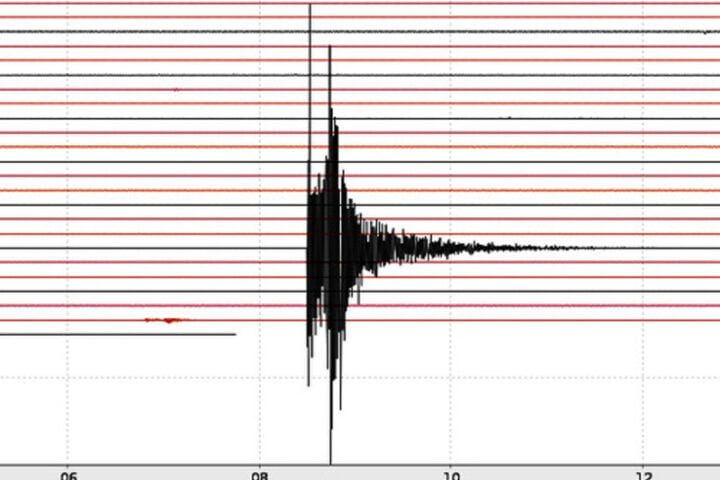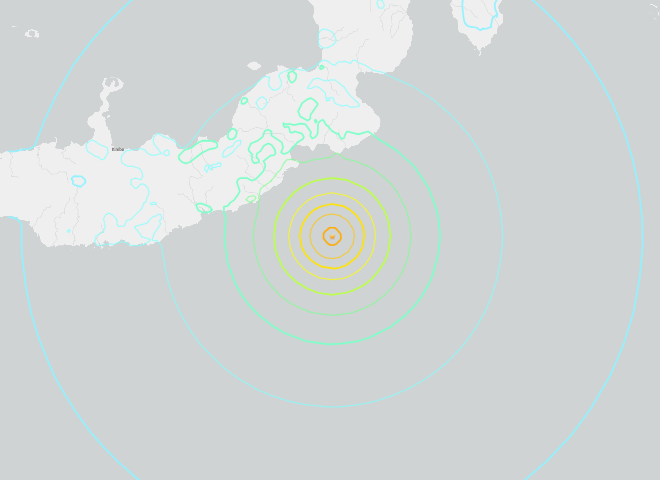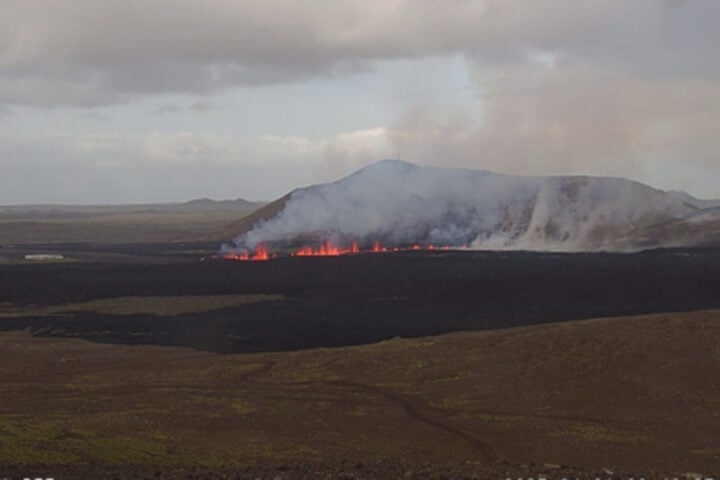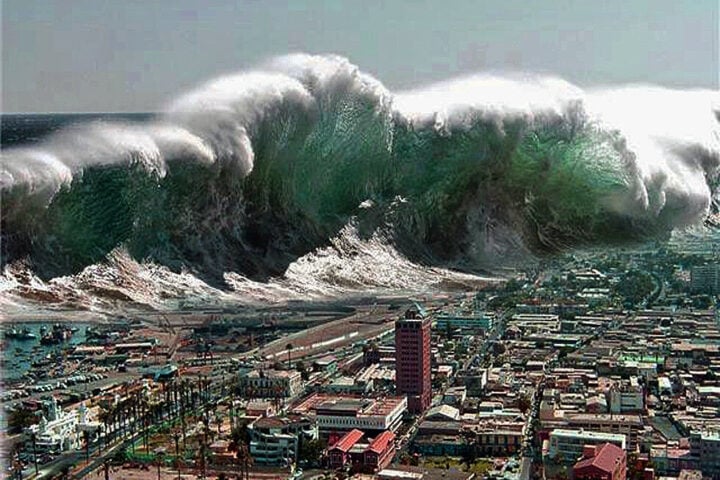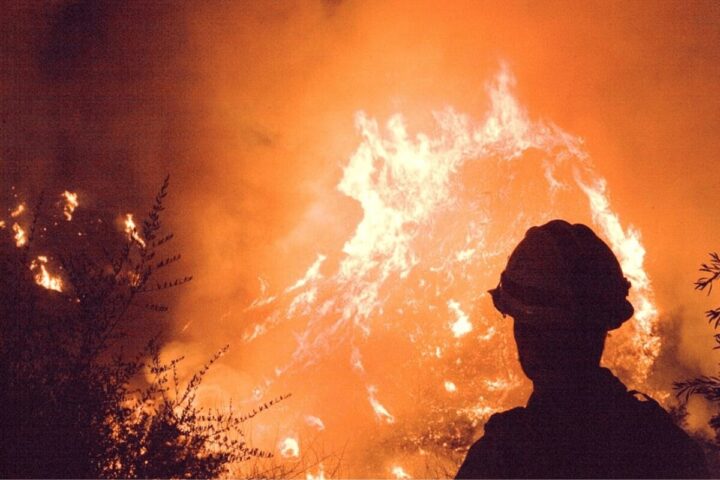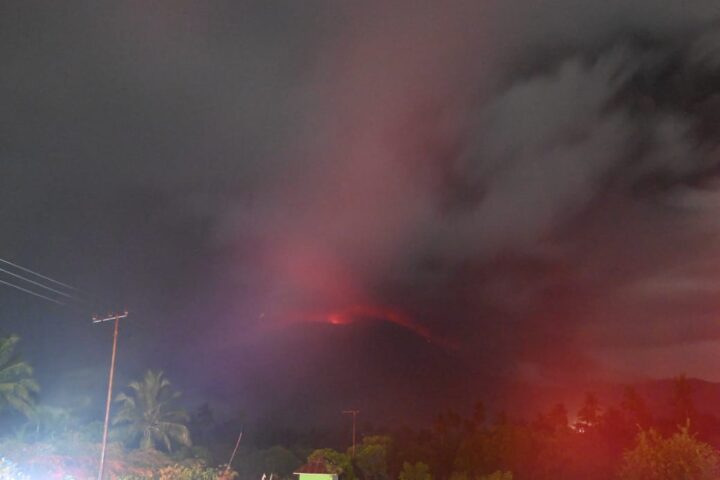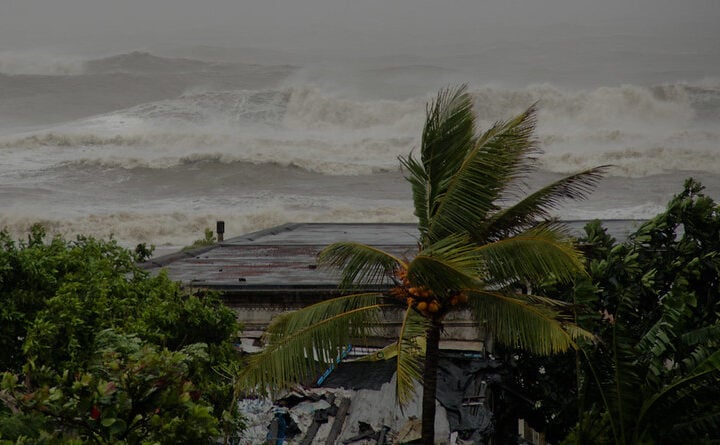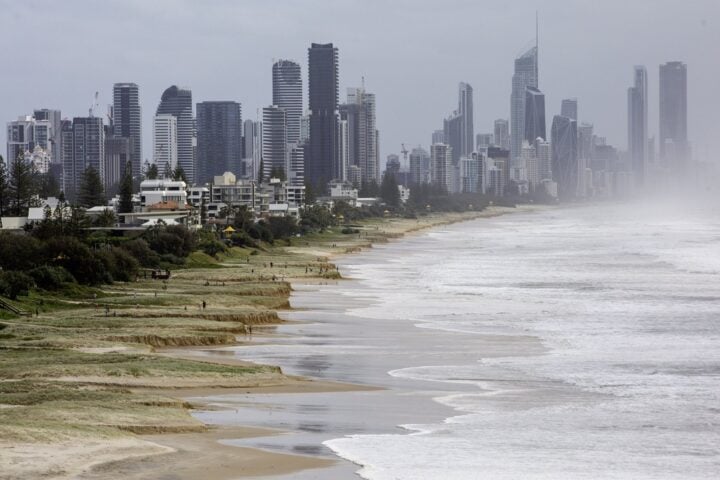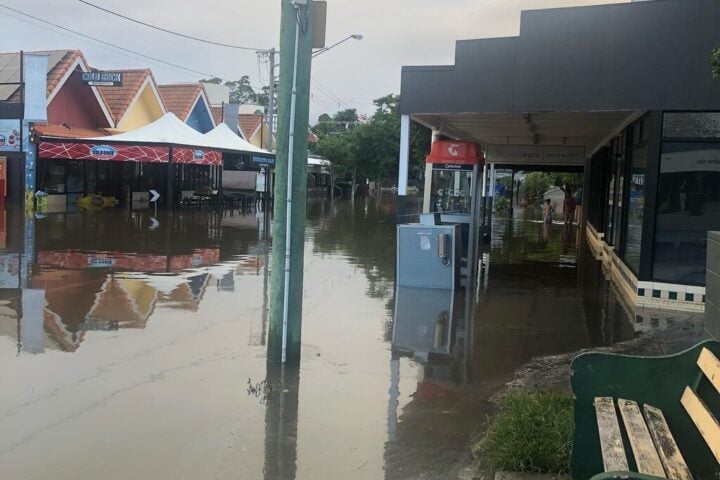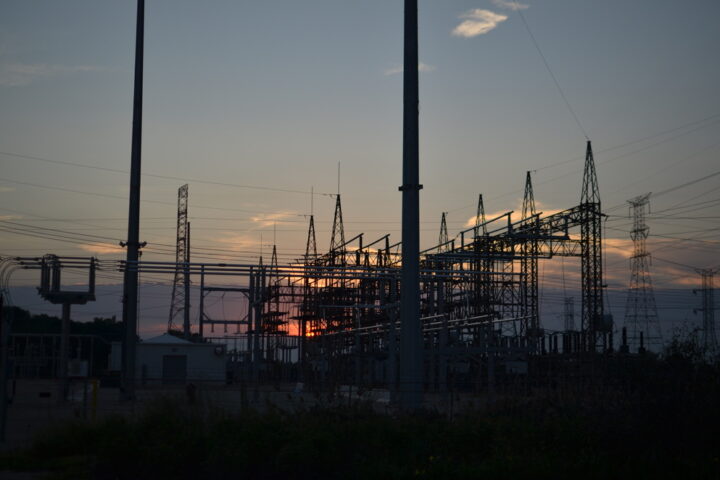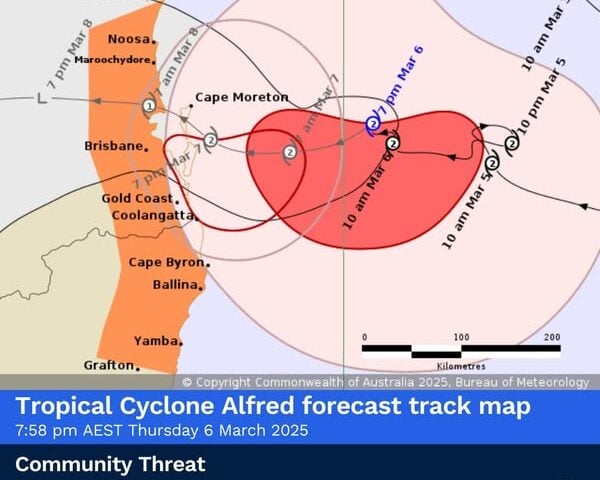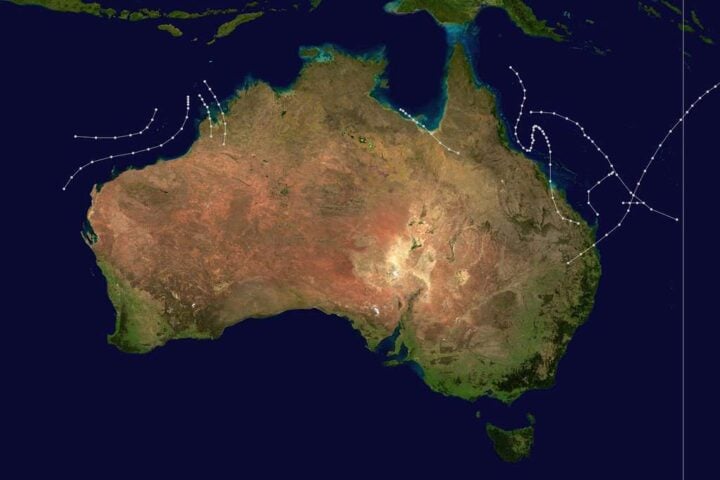Tropical Storm Helene, currently intensifying in the Gulf of Mexico, is projected to make landfall as a major hurricane on Florida’s Gulf Coast by Thursday. This looming threat has triggered extensive preparedness activities across the state’s western regions.
Storm Trajectory and Intensity
Helene is expected to rapidly intensify, potentially escalating from a 45 mph tropical storm to a Category 3 hurricane within 48 hours. The National Hurricane Center (NHC) attributes this accelerated development to exceptionally warm Gulf waters, with sea surface temperatures and ocean heat content at record levels.
Current projections indicate:
- Landfall: Late Thursday, likely in Florida’s Big Bend region
- Wind speeds: Potentially exceeding 65 mph (Category 3+)
- Storm surge: expected Up to 20 feet in the Big Bend area
- Rainfall: 4-8 inches widespread, localised amounts up to 15 inches
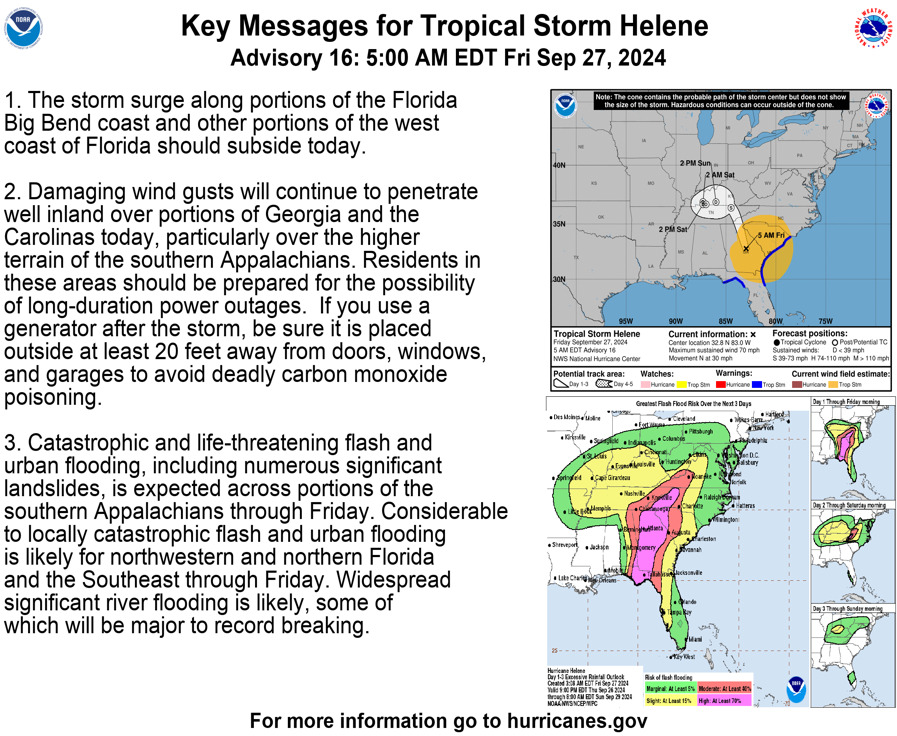
Watches and Warnings
The NHC has issued:
- Hurricane Watch: From Englewood to Indian Pass, including Tampa Bay
- Storm Surge Watch: From Indian Pass to Bonita Beach, including Tampa Bay and Charlotte Harbor
- Tropical Storm Watch: For various coastal areas, including parts of the Florida Keys
Economic Implications
Florida’s property insurance sector, already struggling, faces further strain. Multiple insurers have exited the state or declared insolvency, leaving homeowners with limited options and escalating premiums. This trend poses significant challenges for Florida’s real estate market and overall economic stability.
Previous storms have inflicted substantial damage. University of Florida analysis shows Hurricanes Idalia and Debby caused approximately $500 million in agricultural losses alone.
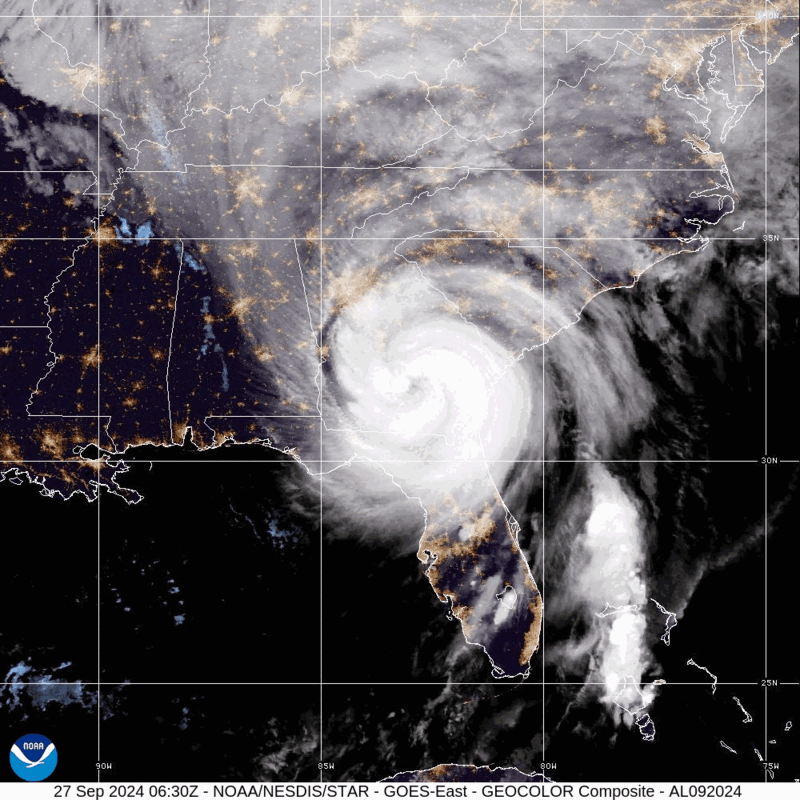
Similar Posts
Infrastructure Preparedness
Critical infrastructure is implementing protective measures:
- Tampa General Hospital: Erecting a 10-foot flood barrier
- Power utilities: Mobilizing 18,000 crew members for potential outages
- Communications: State government preparing to deploy Starlink satellite internet systems
Environmental Concerns
The rapid intensification of Helene over abnormally warm Gulf waters exemplifies the ongoing impact of climate change on hurricane behaviour. Climate Central data indicates that human-caused climate change has made the current record-warm Gulf waters 200 to 500 times more likely.
Storm surge threatens to inundate coastal habitats, including:
- Mangrove forests
- Seagrass beds
- Nesting sites for sea turtles and shorebirds
Governmental Response
Governor Ron DeSantis has expanded the state of emergency to 61 of Florida’s 67 counties. Key actions include:
- Activating 3,000+ Florida National Guard members
- 167 parks have been closed, along with any related overnight accommodations.
- Coordinating with local emergency management offices
Evacuation orders are anticipated, with Taylor County likely to issue a county-wide mandate.
Expert Insights
According to Alex DaSilva, Lead Hurricane Expert at AccuWeather: “Everyone along the Florida Panhandle and Big Bend region needs to be prepared for hurricane impacts. This setup has the potential to become the strongest hurricane landfall in the U.S. this season.”
Preparedness Recommendations
Residents are urged to:
- Secure outdoor items and reinforce windows
- Stock non-perishable food, water, and medications for at least 7 days
- Review evacuation routes and shelter locations
- Prepare waterproof containers for important documents
- Charge electronic devices and procure backup power sources
Historical Context
Helene’s projected path mirrors Hurricane Idalia (2023) and Hurricane Michael (2018), both of which caused extensive damage in Florida’s Panhandle and Big Bend regions. This recurrent pattern underscores the need for enhanced long-term resilience planning and infrastructure improvements in vulnerable coastal areas.
As Florida braces for Tropical Storm Helene, the effectiveness of the state’s hurricane mitigation strategies will soon be tested. The coming days will determine how well the state’s infrastructure and preparedness systems withstand the storm’s intensifying impacts.
